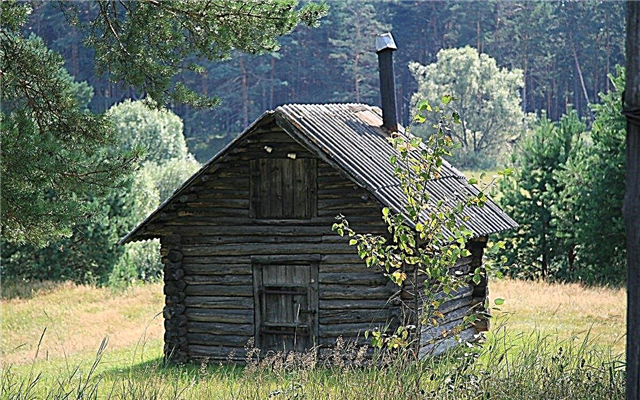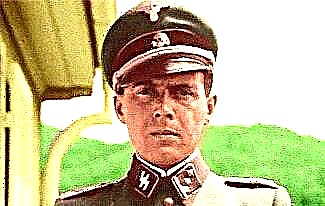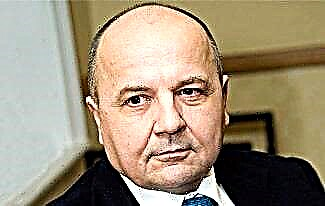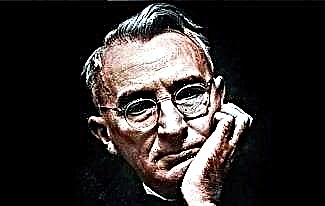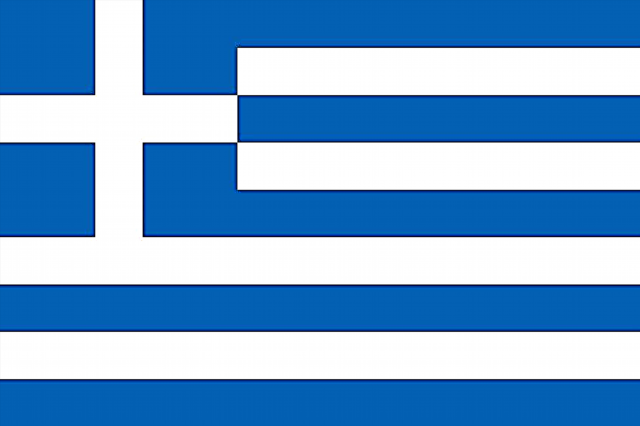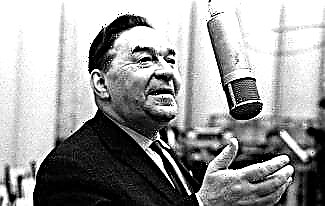Maxim Gorky is considered one of the most talented thinkers and writers. Now his works are studied in schools and the memory of this man is immortalized.

1.Maxim Gorky was born on March 16, 1868.
2. Alexey Maksimovich Peshkov - Gorky's real name.
3. In 1892 the pseudonym M. Gorky appeared in one of the newspapers.
4. Maxim became an orphan at the age of eleven.
5. In his youth, Gorky washed dishes on a steamer and delivered shoes in a shoe store.
6. Maxim graduated only from vocational school.
7. V. G. Korolenko helped the young man to prove himself in the world of literature.
8. In 1906, Gorky illegally left for America on behalf of the party.
9. Maxim urged the Americans to support the revolution in Russia.
10. Mark Twain secured Gorky's reception in America.
11. Maxim visits the Solovetsky camp in 1929.
12. Gorky was Stalin's favorite writer.
13. A large industrial center in Nizhny Novgorod is named after Maxim.
14. The Moscow Art Theater is named after Gorky.
15. Maxim read at a speed of four thousand words per minute.
16. Many consider the circumstances of Gorky's death suspicious.
17. Maxim was cremated after death.
18. After death, Gorky's brain was removed for further study.
19. Most Soviet cities had streets named after Maxim.
20. The metro station in St. Petersburg is named after Gorky.
21. On the territory of the Russian Empire Maxim was the most demanded in comparison with other authors.
22. Maxim in his works described the revolutionary democratic movement and his oppositional attitude to the existing government.
23. Gorky was the head of the World Literature publishing house.
24. Maxim was often called the founder of socialist realism.
25. The future writer was born into a bourgeois family.
26. Gorky spent his childhood in the house of his maternal grandfather.
27. Maxim lost his parents early, so he was brought up by his grandmother.
28. Gorky made attempts to enter Kazan University, which ended in failure.
29. For his revolutionary sentiments, Maxim was often arrested by the police.
30. Gorky's career began with work in a provincial newspaper.
31. In the period from 1891 to 1901, Maxim issued the vast majority of his literary works.
32. In 1898 the first volume of Maxim's works was published.
33. In the work "Mother" the revolutionary sentiments of the writer were set forth.
34. Maxim's political views changed significantly during his life in Italy.
35. Gorky often criticized Lenin's policies.
36. In the work "Confession" the philosophical thoughts of the writer are most clearly visible.
37. Gorky headed the publishing house "Building" in 1901.
38. In 1902 the play of the writer "At the bottom" was staged.
39. Maxim was elected Honorary Academician of the Imperial Academy of Sciences in 1901.
40. Gorky joined the Social Democratic Party in 1905.
41. Maxim immigrates to Italy after the defeat of the revolution in Russia.
42. Gorky had several unsuccessful marriages and an affair with a married woman.
43. He began his literary career as a provincial newspaperman.
44. Gorky's father was a simple soldier.
45. Maxim did not receive a real education, so he studied independently.
46. Gorky tried to commit suicide in 1887.
47. Participated in revolutionary propaganda.
48. The Bible book of Yova was a favorite book of the writer.
49. Gorky raised the problem of ideological realism.
50. Maxim's public position was radical. He was often arrested and in 1905 Nicholas II ordered to annul his election as an honorary academician in the category of fine literature.
51. In Europe, the writer's works and plays had a sensational success.
52. The writer's grandmother introduced him to songs and fairy tales.
53. The real spirit of a rebel developed in Gorky through an unhappy childhood.
54. There is an opinion that Maxim did not experience his own pain.
55. The writer smoked a lot.
56. Gorky suffered greatly from other people's pain and despair.
57. Maxim suffered from tuberculosis since childhood.
58. Gorky never got drunk.
59. Stalin was drinking champagne at the bedside of the dying Gorky.
60. Tolstoy, when talking to Gorky, used obscene words.
61. Ekaterina Volzhin was Maxim's wife.
62. Gorky's son dies under mysterious circumstances.
63. Maria Andreeva was the writer's common-law wife.
64. The Kamenev family were Gorky's personal enemies.
65. Some scholars claim that Stalin poisoned the writer.
66. Stalin tried to make Gorky his political ally.
67. Maxim was popular among women.
68. Nizhny Novgorod is the hometown of the writer.
69. In his work, the writer has always sympathized with the Russian people.
70. Maxim learned to read and write from his own grandfather.
71. The reason for Gorky's arrest was his friendship with the leader of the revolutionary circle.
72. Maxim worked for several local newspapers.
73. In 1905, Gorky meets Lenin.
74. Maxim was married several times and had many mistresses.
75. Gorky worked as a baker and gardener.
76. Maxim has repeatedly tried to kill himself in various ways.
77. The legendary group “Gorky Park” was named in honor of the writer.
78. Scientists still cannot figure out the cause of Gorky's death.
79. Dariya Peshkova is the granddaughter of Gorky.
80. The Central Library is named after the writer.
81. Gorky knew Tolstoy.
82. Maxim leaves for the island of Capri in 1906.
83. In 1938, Gorky's son was poisoned.
84. Maxim's father died of cholera.
85. Mother Maxim was replaced by his own grandmother.
86. The writer had the skills and knowledge of an artisan.
87. Gorky took part in revolutionary propaganda.
88. The book "Essays and Stories" was published in 1899.
89. The glory of Gorky was compared with the glory of Chekhov.
90. From 1921 to 1928, Gorky lived in immigration, where he went after Lenin's persistent advice.
91. Maxim showed himself as a talented organizer of the literary process.
92. Gorky knew Mark Twain.
93. In 1903, a play by Gorky was presented at the Berlin theater.
94. The events of the First World War were reflected in Gorky's state of mind.
95. The writer teaches all state and military events in his creations.
96. In 1934, Maxim is the head of the Writers' Union.
97. An urn with the writer's ashes is placed in the Kremlin walls of Moscow.
98. The pinnacle of the early work of the writer, the play At the Bottom, owes its fame to Stanislavsky's staging at the Moscow Art Theater in 1902. In 1903, the Kleines Theater in Berlin hosted the performance "On the Bottom" with Richard Valentin as Stalin.
99. Many architectural structures are named after the outstanding writer.
100. Gorky died near Moscow on June 18, 1936.

